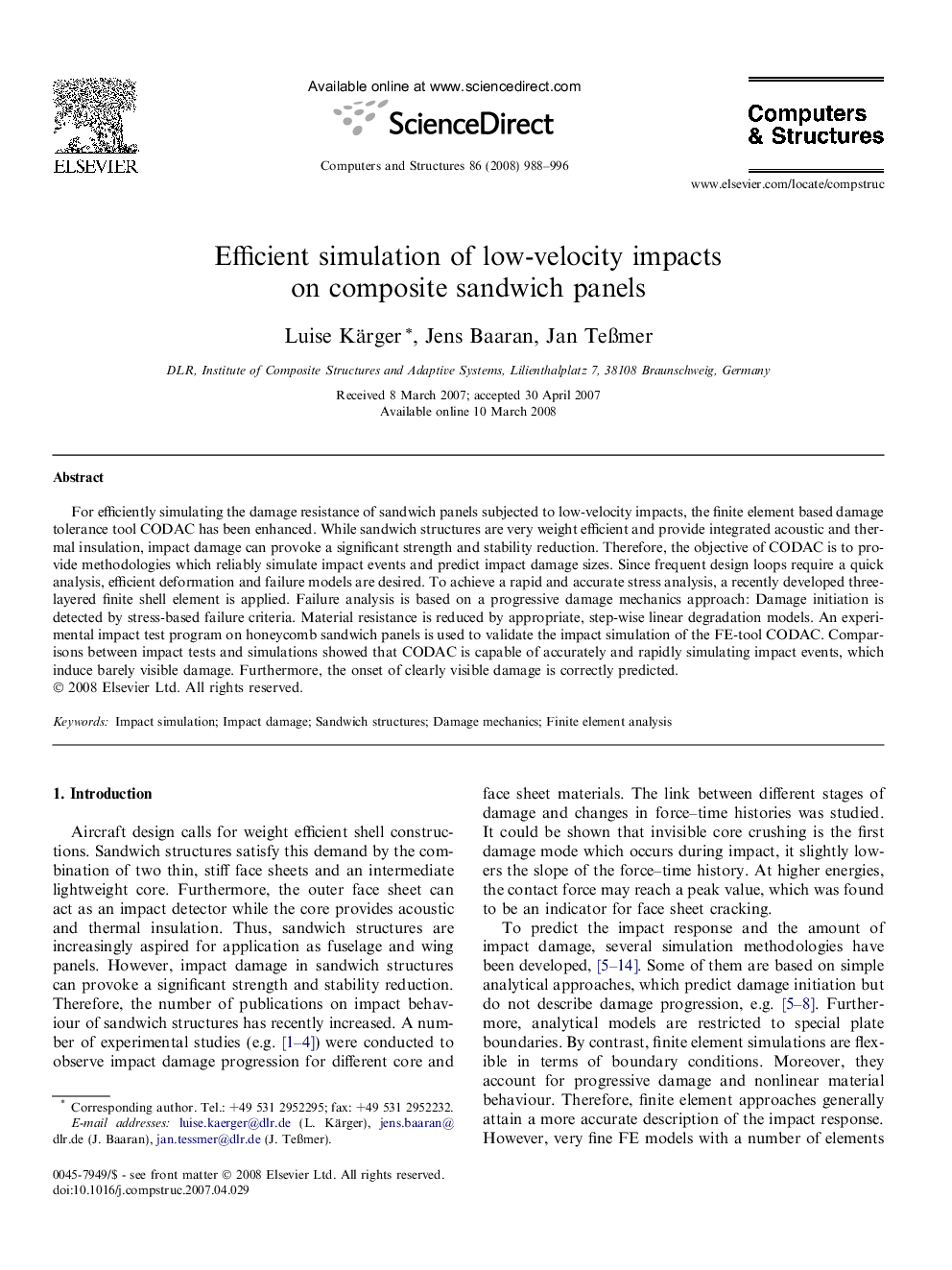| Article ID | Journal | Published Year | Pages | File Type |
|---|---|---|---|---|
| 510967 | Computers & Structures | 2008 | 9 Pages |
For efficiently simulating the damage resistance of sandwich panels subjected to low-velocity impacts, the finite element based damage tolerance tool CODAC has been enhanced. While sandwich structures are very weight efficient and provide integrated acoustic and thermal insulation, impact damage can provoke a significant strength and stability reduction. Therefore, the objective of CODAC is to provide methodologies which reliably simulate impact events and predict impact damage sizes. Since frequent design loops require a quick analysis, efficient deformation and failure models are desired. To achieve a rapid and accurate stress analysis, a recently developed three-layered finite shell element is applied. Failure analysis is based on a progressive damage mechanics approach: Damage initiation is detected by stress-based failure criteria. Material resistance is reduced by appropriate, step-wise linear degradation models. An experimental impact test program on honeycomb sandwich panels is used to validate the impact simulation of the FE-tool CODAC. Comparisons between impact tests and simulations showed that CODAC is capable of accurately and rapidly simulating impact events, which induce barely visible damage. Furthermore, the onset of clearly visible damage is correctly predicted.
